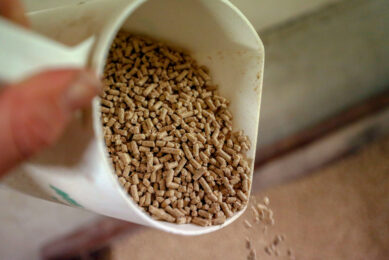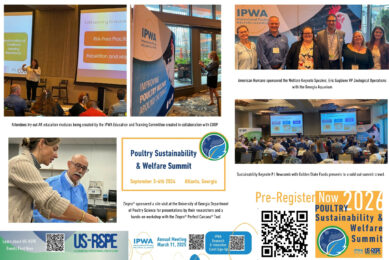Research: Restricting enzymes in broiler diets
Portuguese research studied the effects of restricting enzyme supplementation in wheat-based diets to broilers.
The performance of broilers fed on xylanase supplemented diets for part or all of the production cycle was evaluated in two experiments.
In a preliminary experiment, 1-day-old chicks were fed a wheat-based diet supplemented with a commercial xylanase for the entire duration of the experiment of 28 days, or during the last 21, 14, or 7 days of the trial.
In experiment 2, the growth period was extended to 36 days, and birds were fed xylanase supplemented diets for the entire duration of the experiment, or during the last 27, 18, or 9 days of the trial.
In both experiments, an additional group was fed a non-supplemented control diet.
Results
Xylanase-supplemented broilers outperformed non-supplemented birds.
Significant differences in body weight emerged at 21-28 days of age, suggesting that the response to xylanase supplementation occurs primarily during the latter stages of broiler growth.
Broilers fed xylanase-supplemented diets for the entire experiment presented similar growth performance, intestinal viscosity, gastrointestinal enzyme activity and organ sizes when compared with birds supplemented with the exogenous xylanase for the last 14 (experiment 1) or the last 18 days (experiment 2) of the trials.
Birds exposed to exogenous xylanase for the entire duration of the experiment showed, however, a non-significant trend towards an improved final body weight and feed conversion ratio.
Conclusion
Nevertheless, it appears that an early exposure to the exogenous xylanase is of marginal importance in obtaining a significant response to xylanase supplementation by broilers fed wheat-based diets.












